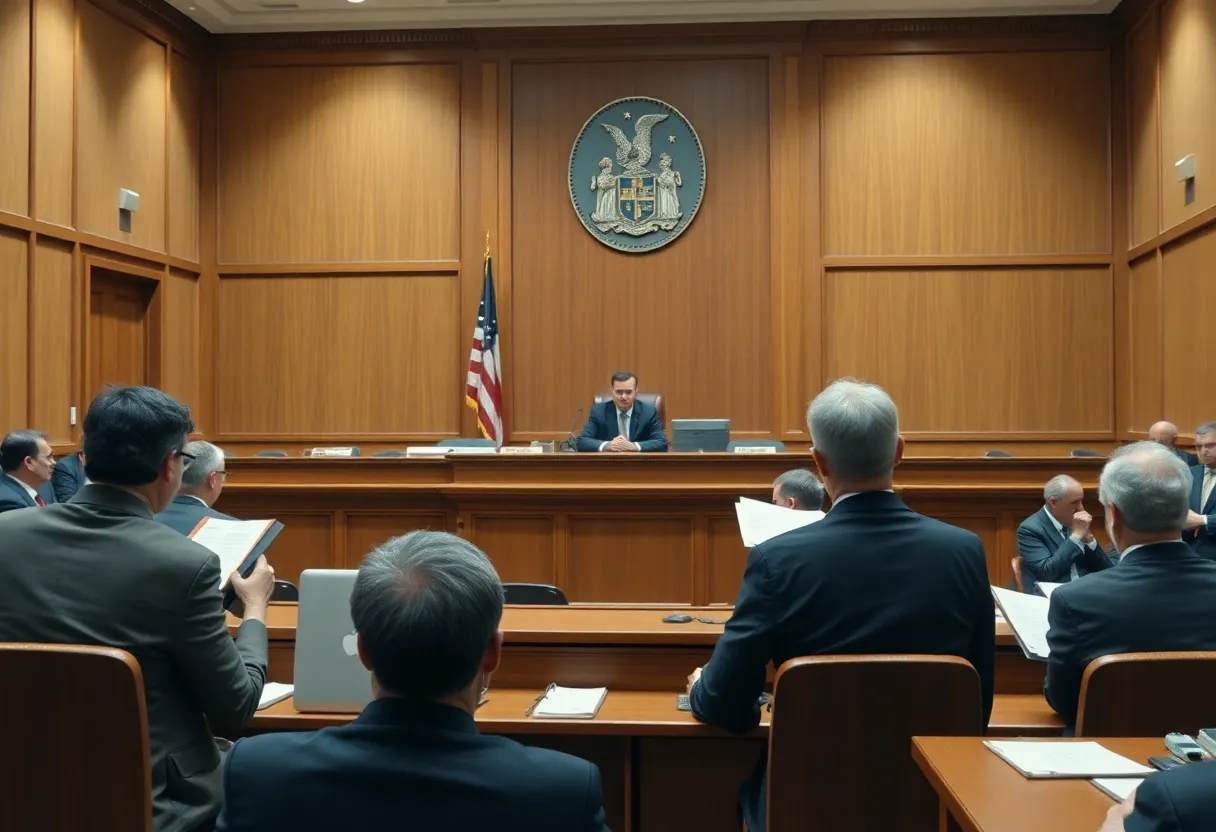News Summary
Bestwall LLC is appealing its bankruptcy case regarding asbestos-related liabilities, drawing significant attention and criticism over the legality of its tactics.
Bestwall LLC’s Bankruptcy Appeal Sparks Controversy Over Asbestos Liabilities
In a rapidly unfolding legal saga, Bestwall LLC, a subsidiary of Georgia-Pacific tasked with managing asbestos-related liabilities, is now appealing its bankruptcy case in the US Court of Appeals for the Fourth Circuit. This appeal comes on the heels of multiple claims from cancer patients who have been harmed due to exposure from Georgia-Pacific’s asbestos-containing products. The core of the contention revolves around the argument that the Chapter 11 bankruptcy filing is unjustified, particularly given the solvent status of Georgia-Pacific, Bestwall’s parent company.
The Controversial Bankruptcy Strategy
The longstanding practice of utilizing a shell company to alleviate tort liabilities, especially in scenarios involving asbestos claims, has sparked considerable debate. Critics argue that such maneuvers undermine the principles of the bankruptcy system itself. Bestwall has been entrenched in efforts to settle a multitude of product liability lawsuits for nearly eight years, yet the road to resolution remains fraught with challenges.
Recent disclosures have raised eyebrows, as it was revealed that Georgia-Pacific disbursed around $1.84 billion in dividends to its parent company, Koch Inc., raising significant questions about its financial distress claims. Legal experts are wary about the implications of allowing solvent companies to exploit bankruptcy proceedings as a tool to manage liabilities, thereby compromising the integrity of the system.
The Framework of the Texas Two-Step
Central to the unfolding drama is the infamous Texas Two-Step strategy, which involves a parent company creating a subsidiary to take on its liabilities, only to subsequently file for bankruptcy. This strategy has come under fire for appearing designed to sidestep legal responsibilities. Claimants assert that Bestwall lacks the necessary financial distress to justify its current bankruptcy, especially considering the robust financial health of its parent firm.
The Fourth Circuit had previously permitted Georgia-Pacific to proceed with the bankruptcy process while remaining lawsuits against the company were on hold, a decision that many stakeholders found perplexing. Furthermore, Bestwall’s legal team managed to successfully defeat an appeal that sought to restrict asbestos plaintiffs from pursuing litigation against Georgia-Pacific and its non-bankrupt affiliates, thus allowing a glimmer of hope for victims.
Widespread Criticism and Legislative Backlash
In a display of bipartisan disapproval, U.S. senators and attorneys general from 24 states have publicly condemned Georgia-Pacific’s bankruptcy tactics as morally questionable and detrimental to those impacted by asbestos exposure. The ongoing debate encapsulates a broader concern regarding the ethics of corporate bankruptcy practices and their ramifications for victims seeking justice.
The case of Bestwall LLC does not only center on its actions but unfolds as a significant opportunity to interrogate the constitutionality of solvent debtors exploiting bankruptcy mechanisms to circumvent legal responsibility. A ruling from the Fourth Circuit has the potential to set precedents that could dramatically alter the landscape for corporations contemplating similar tactics.
Future Implications and Legal Landscape
The implications of this case extend far beyond Bestwall itself. A decision by the Fourth Circuit against Bestwall could open the door for numerous corporations to deploy similar divisional mergers in bankruptcy to manage their tort liabilities. This potential shift raises alarms among legal professionals and advocates for victims, who worry about the emergent norm of wealthy corporations manipulating bankruptcy laws.
The case is formally recorded as In re Bestwall LLC, 4th Circuit, No. 24-01493, with oral arguments slated for May 8, 2025. As scrutiny builds regarding the Fourth Circuit’s forthcoming decisions on jurisdictional and constitutional arguments in bankruptcy law, all eyes will be on the court and its ruling’s subsequent fallout.
With backing from entities such as Trane Technologies and a representative for future claimants, alongside support from the US Department of Commerce, the unfolding saga of Bestwall LLC’s bankruptcy continues to be one of the most highly-watched legal dramas in the realm of asbestos litigation.
Deeper Dive: News & Info About This Topic
HERE Resources
Closure of Asbestos Screening Clinic in Libby, Montana
Health Risks From Urban Transformation in Kadikoy: A Communities’ Plea for Action
Closure of Libby’s Center for Asbestos Related Disease Clinic After Court Ruling
BREAKING NEWS: Asbestos Screening Clinic in Libby, Montana, Abruptly Shut Down
Bestwall’s Bankruptcy Battle: A Legal Tangle Over Asbestos Liability
Controversy Erupts as Asbestos Clinic in Libby, Montana, Faces Closure Amid Legal Battle
Closure of Asbestos Clinic Leaves Libby Residents in Health Limbo
The Closure of the CARD Clinic: A Blow to Libby’s Asbestos Victims
Closure of the Center for Asbestos Related Disease Shakes Libby, Montana Community
The Closure of Libby’s Asbestos Screening Clinic: A Public Health Crisis
Additional Resources
- Bloomberg Law: Bestwall Appeal Offers Glimpse at Asbestos Bankruptcies’ Future
- Wikipedia: Bankruptcy
- Law360: Texas Two-Step Takes Second Step into Appeals Courts
- Google Search: Texas Two-Step bankruptcy
- Reuters: Georgia-Pacific Unit’s Two-Step Bankruptcy Survives Dismissal Again
- Google Scholar: Georgia-Pacific asbestos
- Mesothelioma Guide: U.S. Senators Oppose Georgia-Pacific’s Asbestos Trust Fund Strategy
- Encyclopedia Britannica: Asbestos



















